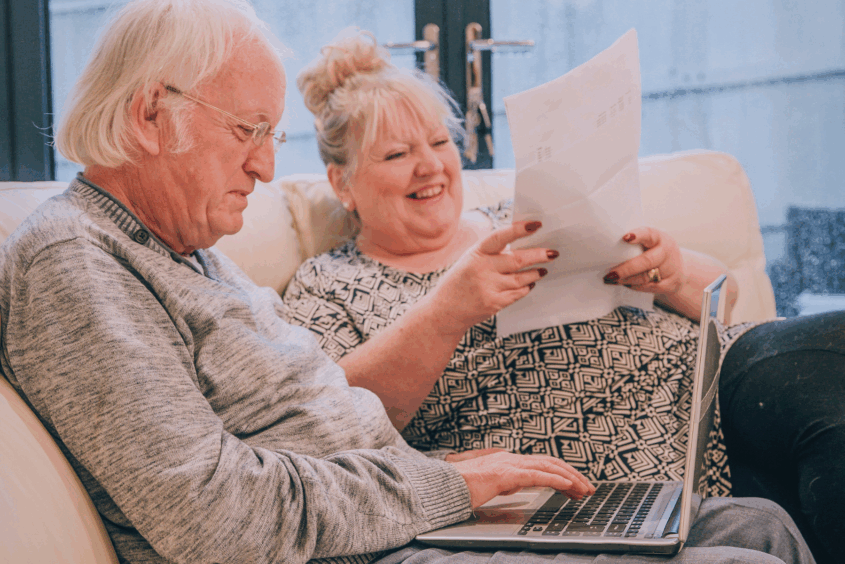
There are several financial support options to help cover the cost of everyday essentials – explore which options below are suitable for you. If you need more advice or information, you can contact our Money Matters team on 0113 386 1000.
Support covering a range of everyday essentials
The Household Support Fund Scheme is designed to help people with the cost of essentials such as energy, food and household bills. Find out what support is available in your area:
Your local council offers a Local Welfare Support Scheme to provide help with essential living costs, including emergency support for food, energy, and essential household items. Find out more from your local council:
If you’re already on Universal Credit you can apply to get an advance on your Universal Credit payment or other support to help with financial difficulties.
Support for specific everyday essentials
There are plenty of free and low-cost activities happening locally throughout the year.
Take a look at the links below to give you some ideas about things you can do for free:
Other low-cost options include:
- Events in Kirklees
- Things to do in Leeds and West Yorkshire
- Things to do in Selby
- Things to do in North Yorkshire
- Things to do in Wakefield
Your local council also has lots of information about events and activities happening near where you live over the school holidays:
Families on a low income can get support for clothing through charities, clothing banks, and the Government.
To find out what support is available in your area, contact your local council:
Foodbanks
We work closely with the Trussell Trust and can give out vouchers for your local Trussell Trust Foodbank. Contact our Money Matters team on 0113 386 1000.
- Find out more about the Trussell Trust and get emergency food
- Get emergency food in Harrogate
- Get emergency food in Selby
- Get emergency food in South Kirklees
- Get emergency food in Wakefield
Pantries
Food pantries are community-based organisations that provide low-cost or subsidised food. Unlike food banks, which typically offer free emergency food with a referral, food pantries operate more like a grocery store with a membership model where people can buy groceries at reduced prices.
- Community food options in Kirklees
- Community larders in Ripon
- Community kitchen in Wakefield
- Surplus to Purpose supermarket and online shopping
Community food options in Leeds
Apps
You can also download Apps on your phone to help you connect with your neighbours, find food for less and reduce the amount of waste going to landfill:
Furniture projects, charities and second-hand shops can provide free or low-cost second-hand furniture, as well as electrical and household items.
Local options include:
- BHF in Wakefield – a charity shop offering low-cost furniture and electrical items.
- Essential Needs in Harrogate – a charity that redistributes good quality used furniture, household items and white goods to people who need them.
- Leeds and Moortown Furniture Store – offering free furniture. People need to be referred to this service from their council, a charity, or by us.
- Revive in Leeds (Hunslet, Kirkstall and Seacroft), Huddersfield and Batley – a charity shop diverting furniture and other items away from landfill.
You can also join free websites to give away or get things for free:
Your council offers a Local Welfare Support Scheme which provides support to cover the cost of essential items and furniture. Find out more from your local council:
It’s a good idea to take out home contents insurance to cover your possessions against fire, theft or other risks, such as accidental damage. If you don’t have insurance, it can be expensive to replace these items.
Having savings set aside can give you peace of mind if there are unexpected costs (such as a car breakdown) and it helps put you in control. Saving can also help you build towards something special, like a holiday or car. Explore the options below to learn more about different ways you can save:
- Help to Save scheme – a 50% bonus for low-earners on Universal Credit
- How to save – information about choosing the best savings option for you
- Find a local credit union – credit unions are member-owned and not-for-profit. They provide savings, loans and other financial services, such at budgeting support
Check if your child can get free school meals in England and find out how to apply on your local council’s website:
To find support for school uniform costs in your area, start by checking your child’s school website for information on second-hand uniform options, uniform swaps, or any available grants. If the school doesn’t have a specific school uniform scheme, contact them directly for guidance. Get help with the cost of school uniforms or explore your local school uniform bank:
Warm spaces are designated places where people can gather for free in a safe, comfortable, and friendly environment, especially during colder months. They offer a place to stay warm, potentially enjoy refreshments, and connect with other local people. These spaces are often located in libraries, community centres, churches, and other venues.

